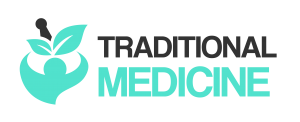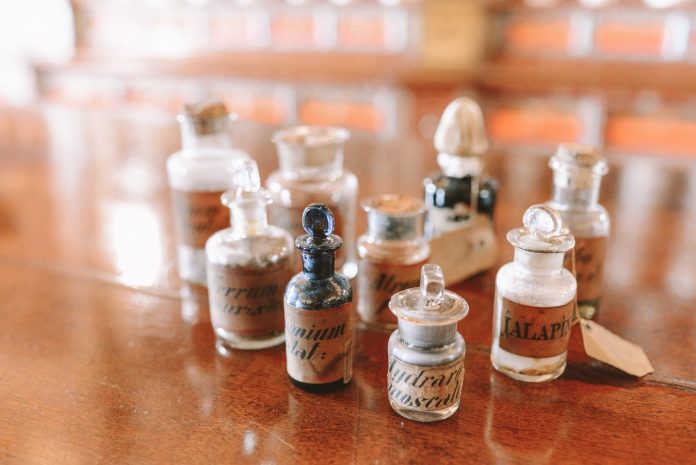Traditional Healing is the oldest form of structured medicine, that is a medicine that has an underlying set of principles by which it is practiced. It is the medicine from which all later forms of medicine developed, including Chinese medicine, Graeco-Arabic medicine, and of course also modern Western medicine. Traditional Healing was originally an integral part of semi-nomadic and agricultural tribal societies, and although archaeological evidence for its existence only dates back to around 14,000 B.C., its origins are believed to lie much further back and probably predate the last Ice-Age.
Unlike other traditional medicines, Traditional Healing has no philosophical base, as its practice is totally founded on healing knowledge that has been accumulated over thousands of years, and upon the healer’s personal experience, which includes his/her awareness of, and sense of unity with the natural world, as well as his/her understanding of the different levels of consciousness within the human psyche. Traditional Healers see the universe as an living intelligence that operates according to natural laws that manifest according to specific rules and correspondences, and exercise their inner conviction that the purpose of life and the nature of disease cannot be understood without a knowledge of these laws and the individual’s relationship to the natural world.
Thus Traditional Healers share a profound knowledge and a deep understanding of how natural laws influence living things. It is for this reason that Traditional Healing is often referred to as “wisdom medicine” or “Wizard Medicine” (the word wizard means ‘wise man’, not ‘sorcerer’) and Traditional Healers are often referred to as wise or “clever” men or women or as persons of knowledge. It is this knowledge and experience base that provides the similarity between the core principles of Traditional Healing through the ages and in different parts of the world.
There were and of course still are regional differences between the way Traditional Healers apply their knowledge, but this is simply a pragmatic adaptation by the Traditional Healer, because he/she cannot perform their role in a way that is isolated from the cultural perceptions and belief patterns of those whom they treat.
Traditional Healers practice in a different way than practitioners from other types of medicine.
- Traditional Healers practice “World Medicine”, that is the medicine that originally was, and still is the heritage of all humanity. Their medicine is free from the philosophical layers that have been added over the centuries to other traditional medicines as a result of political and religious pressures. As such Traditional Healers contend that they are practicing with a clarity of concept that has in most cases been lost from other traditional medicines.
- Traditional Healers are truly holistic and understand the mind-body relationship. They consider humans to be complete beings that cannot survive as component parts, and therefore hold that true health represent an integrated state of well-being that includes the body and the mind. They therefore belief that ill-health cannot be treated effectively by experts that treat components of the individual in isolation; and that the natural harmony called health can only be restored by an integrated and holistic approach that incorporates both the physical and the “mind” aspects of the individual.
- Traditional Healers use natural methods of treatment, because these were the resources that have nurtured the human race – and in fact all life – since the beginning of time. Traditional Healing treatments are always integrated and involve a combination of approaches such as counseling, nutritional therapy, herbal medicine, reflex therapy and other physical therapeutics.
- Traditional Healers used to be taught by other Traditional Healers with many years experience, by means of an “apprenticeship” that would take a minimum of 7 years, and usually much more. These days however most Traditional Healers have a combination of formal higher education as well as having been mentored for an extended period by a more experienced Traditional Healer.
- Traditional Healers have strong ethical principles that they extend to all life. They believe it is their duty to foster life in all its forms and to alleviate suffering. They also believe that Nature’s laws must be obeyed in order to avoid decline and ultimate disaster.
Principles of Traditional Healing.
There are “four pillars” of Traditional Healing which according to the Roman historian Piny the Elder (23-79 AD.) were: “Eruditio, Perspicacitas, Beneficentia et Caritas”. Roughly translated these mean: “learning, insight, kindness and empathy”. These are the basic principles that should guide the Traditional Healer in all his or her actions.
Traditional Healing always deals with natural laws, because all life is subject to these natural laws and ill-health is usually due to an inherent or acquired weakness that has allowed an abnormal imbalance to occur, either within an organism, or between the organism and its environment. Therefore Traditional Healers do not only work at correcting any weakness or damage to the life force or psyche that has allowed an illness to “conquer” the individual, but also work to correct the resultant internal imbalances that allow the disease to persist.
Energetic Medicine.
Traditional Healing is an energetic medicine. It considers that an all-pervading energy is present in all matter, that embodies the natural laws and universal creative force. This energy has different names in different cultures; for example the ancient Greeks called it Pneuma and also Aether, in China it is called Qi, in Japan Ki, in India Prana, while in the Pacific cultures it is know as Mana. Although this energy may have many different names, the underlying attributes of this energy are understood in much the same way in all cultures. Thus living beings are considered to manifest a higher level of this energy, while inanimate objects manifest this energy in a much more limited and basic way. Traditional Healers believe that this energy can become disturbed in living beings due adverse thoughts and emotions, an inappropriate lifestyle, an unwholesome diet, unhealthy air, tainted water, an unnatural environment and disharmony with natural cycles. As these are the ultimate causes of disease, the Traditional Healer may initially set out to improve overall health, but will always recognise the need to correct the cause in order to provide a full and final recovery.
This energy manifests itself in the physical world in the form of concrete entities called elements. These elements are not the same as the elements used in modern chemistry, but rather represents specific attributes of matter. For example, Fire is energetic and consuming, Air is active and enlivening, Water is formless and controlling, while Earth is solid and nurturing. These attributes represent different levels of activity of energy, and determine not only the appearance of material objects, but also the inherent nature of living things. In man a specific combination of these elements translates into a system of individual constitutions and temperaments, which represent inherent and acquired characteristics, which must be taken into account to ensure the correct treatment approach is used for a given person.
The Shaman and the Traditional Healer.
A great deal has been written over the years in respect to the ritual approaches used in some cultures in order to achieve altered states of consciousness. Examples of these are those utilised by the Siberian Tungusic and Samoyedic Traditional Healers, as well as those that belong to certain Amerindian groups. Altered states of consciousness are simply deep introspection or “meditation” that gives access to the inner knowledge and wisdom that we all share. This introspection is a normal part of Traditional Healing and is practiced in order to ensure that the Traditional Healer maintains his/her essential relationship with the natural world and the universal creative force. The approaches that are broadly described as “shamanism” however are cultural and whether or not these are practiced by a Traditional Healer depends on his/her ethnic and cultural background and milieu. Thus most traditional shamans are also Traditional Healers, but certainly not all Traditional Healers are shamans.
Traditional Healing Today.
Since the advent of ‘big government’, which in Europe occurred with the Roman invasions and in North America and Australasia with English colonisation, Traditional Healing has at best been misrepresented and suppressed and at worst been persecuted. This is not surprising, as the Traditional Healers’ extensive knowledge and their independence, because of their use of freely available natural resources, tends to place them outside of the economic and political control of governments. Governments therefore have, through the ages, tended to view Traditional Healers as a legacy of the past freedoms of tribal life and thus as a threat to their autonomy and power. This is why all governments have striven to fragment and control healing practices. Big government is generally only interested in control and power, and very rarely has had any real or genuine interest in the health of its subjects. This is proven by the fact that governments have, over the ages, been quite happy to sanction and give patronage to medical practices that were more lethal than helpful, as long as these were under their control. For the ability to control a country’s medicine gives rulers unsurpassed control over its citizens.
In the past, the fear of reprisals by governments has caused a severe decline in Traditional Healing and has forced most Traditional Healers to do their work very quietly, within a circle of trusted supporters. Nevertheless there are some areas in the world where governments have had limited impact and Natural Healers have continued to practice, but these are few and are mostly located in Central America, Central Asia and Korea. With the new resurgence of ethnic practices and medicine all over the world however, Traditional Healing is also gradually gaining strength and is making a slow, but sure return, although the number of Traditional Healers worldwide is still not large by any means. Traditional Healing is not looking for endorsement by any government however. Governments and civilisations exist at best for a limited time. Traditional Healing is both an ancient medicine and the medicine of the future. It is timeless.
Ethics.
Traditional Healers that are Chartered members of the Traditional Healers Fellowship have a Code of Ethics, which they have pledged to abide to at all times.
This Code of Ethics fulfils two important roles:
- It protects the public by making members and their patients aware of what constitutes proper ethical practice, and
- It protects the reputation of Traditional Healers.
Traditional Healers’ Code of Ethics.
- Traditional Healers must practice with high motives and ideals and by following the laws of nature.
- The duty is to facilitate nature’s healing power to the highest possible degree.
- A Traditional Healer must maintain proper care of a patient and respond to an emergency.
- A Traditional Healer shall not attend a patient while inebriated or while suffering a communicable disease.
- A Traditional Healer shall always endeavour to have a legal guardian present when treating a ward or minor.
- A Traditional Healer shall not engage in immoral or improper conduct with a patient, nor encourage such behaviour.
- A Traditional Healer shall not exploit a patient; fees must be fair and treatments relevant to the patient’s condition.
- Statements to patients should be made in a spirit of caring and truthfulness.
- Conditions that do not improve and those that lie outside the ability or training of the Traditional Healer should be brought under the care of another appropriately skilled practitioner.
- A Traditional Healer shall not cause the termination, nor facilitate the termination of the life of a person or a foetus.
- Appropriate patient confidentiality must be maintained at all times.
- Advertising and promotion must be ethical; exaggerated claims are against the spirit of Traditional Healing.
- Traditional Healers shall uphold the honour and reputation of Traditional Healing at all times.











